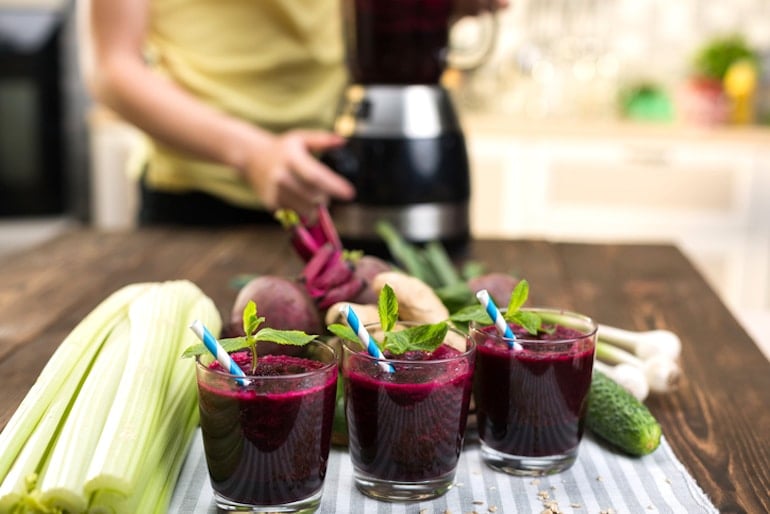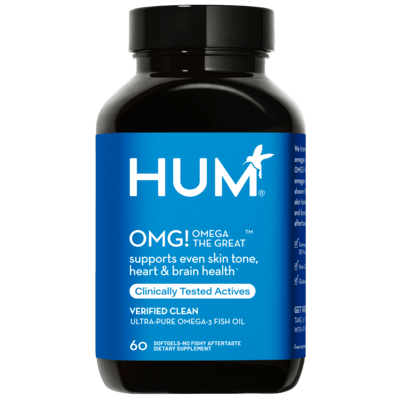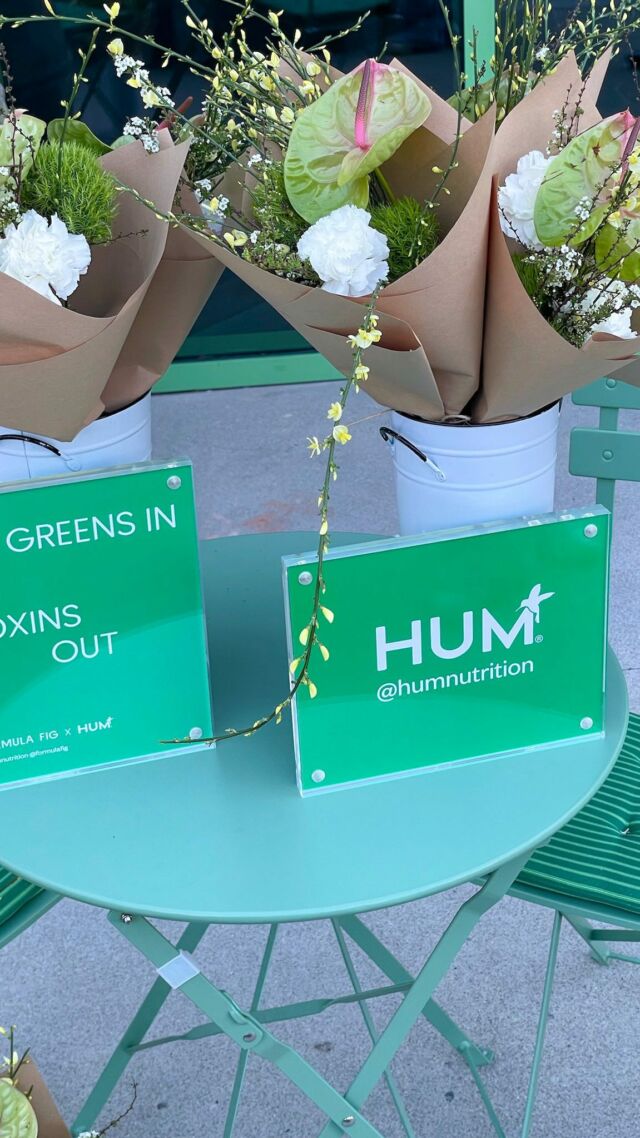THE WELLNEST • Food • Healthy Eating
9 of the Best Foods to Boost Your Brain Health
By Chelsey Amer, MS, RDN, CDN •
September 28, 2020
Sure, you’ve heard of food for thought. But Chelsey Amer, MS, RDN, CDN, goes beyond the popular idiom by sharing a list of the best foods for brain health.
When it comes to brain health, we’ll take any advantage we can get, right? After all, your brain is arguably the important organ in your body!
Not only does your brain control your thoughts, feelings, memory, and intelligence, but also physical movements, including your beating heart and breathing through your lungs. For these reasons and more, keeping your brain healthy is essential, to say the least.
But unfortunately, there’s no amount of brain teaser puzzles you can complete to overcome a nutrient-deficient diet. That’s where your food choices come in.




9 Best Foods to Boost Brain Health
To support brain health through nutrition, add some of these brain-healthy foods to your diet.
1. Salmon + Fatty Fish
Your brain is about 60 percent fat. So healthy fats, including omega-3 fatty acids, are among the best foods for brain health and memory. Omega-3 fatty acids are considered an essential nutrient, meaning your body can’t make them from scratch. For that reason, you must eat or supplement with them. Salmon is rich in EPA and DHA omega-3 fatty acids. Eating fish twice weekly is recommended for brain-related benefits from omega-3s, like supporting your mental health by regulating sadness and stress. (For culinary inspiration, try out my baked Dijon salmon recipe.) Further, for expectant mothers, high omega-3 fatty acid intake during pregnancy can support your newborn with:- higher intelligence
- better communication and social skills
- fewer behavioral problems
- a decreased risk of hyperactivity
2. Dark green veggies
Plant-based foods are known to prevent cognitive decline, largely due to their numerous nutrients and antioxidants. Antioxidants are tiny molecules that fight free radicals in your body that could cause harm. Dark green vegetables also pack vitamin K, folate, and lutein to promote good cognitive function. When it comes to food for your brain, the best green veggies include:- broccoli
- kale
- Brussels sprouts
- collard greens

3. Beets
Not only are beets pretty to look at, but they also provide a potent punch of antioxidants to support brain health. Beets are rich in anthocyanins and nitrates, which can help reduce inflammation and improve oxygen flow to the brain. Although a degree of cognitive decline is normal with age, improved blood and oxygen flow can help deliver key nutrients to the brain and help maintain cognitive function. Drinking beet juice can help increase blood flow to the brain, which supports brain health, especially in older adults. Moreover, beets contain vitamin B6, magnesium, and folate, which are also among the best brain-boosting nutrients.4. Berries
Similar to beets, the deep-colored pigments in blueberries, blackberries, raspberries, and strawberries promote benefits for brain health. Berries are rich in antioxidants, which help reduce oxidative stress and inflammation, thus improving mental acuity and combatting age-related memory loss. The antioxidants in berries can also alter the way brain cells communicate. Better communication between brain cells can help prevent mental decline.5. Eggs
Eggs are an terrific source of choline, a lesser-known nutrient that wards off cognitive decline and aids memory. But how? Choline is required to create the neurotransmitter acetylcholine. Acetylcholine is necessary for widespread brain function, including mood regulation, memory, and muscle coordination. Eating eggs (specifically the yolks) not only provides a significant dose of choline, but other brain-supporting nutrients as well. Eggs contain B vitamins—including vitamin B6, folate, and vitamin B12—which boost brain health. Low folate and vitamin B12 levels can impact your neurological function with difficulty thinking and mood changes. Note: Vegetarians and strict vegans are at the highest risk for vitamin B12 deficiency since natural food sources of vitamin B12 are limited to animal foods.
6. Green Tea
Sipping green tea daily can also help protect your noggin. First of all, the caffeine in green tea provides a brain-stimulating effect. You probably sip your morning caffeinated beverage for a jolt of alertness, but caffeine has also been shown to improve concentration, cognition, and mood. (FYI, the same goes for caffeine in coffee.) In addition, the antioxidants in green tea provide a powerful brain boost to ward off neurodegenerative ailments. Green tea also contains a compound called L-theanine. L-theanine increases the production of the neurotransmitter GABA, which can help you feel calmer.7. Dark Chocolate
For all of my chocolate lovers, here’s a fun fact for you: Chocolate consumption is linked with improved brain function. Flavanols, a type of antioxidant found in cocoa, has anti-inflammatory effects. Several studies associate chocolate intake with an increase in blood and oxygen flow to the brain, and even more electrical nerve activity, which promotes better brain function. Dark chocolate has the greatest flavanol levels of all chocolate types because of its high cocoa content, so opt for at least 70 percent cocoa when eating chocolate for brain health. Further, chocolate contains some caffeine, which can give your brain a boost, too.8. Nuts + Seeds
Eating a variety of nuts and seeds can help broaden your nutrient intake to support the health of your brain. Nuts and seeds are rich in plant-based protein, brain-boosting healthy fats, antioxidants, and a variety of vitamins and minerals. In particular, walnuts are linked with improved cognitive function. Walnuts, as well as flaxseeds, are rich in ALA omega-3 fatty acids. Next, pumpkin seeds and cashews pack a hefty dose of magnesium. Magnesium is a key nutrient to support learning, memory, mental health, and quality sleep. Conversely, low magnesium levels can compromise your cognitive health and mood. Furthermore, many nuts and seeds contain vitamin E, an antioxidant that protects the brain from age-related decline. Opt for the likes of:- sunflower seeds
- peanuts
- almonds

9. Extra Virgin Olive oil
If your preferred cooking oil is extra virgin olive oil, you’re doing your brain a favor! High-quality extra virgin olive oil is rich in antioxidants, which protects your brain cells from damage and age-related decline. Even more, studies have shown that EVOO is associated with improved brain cell communication, memory, and cognition. More often than not, opt to cook with olive oil to reap the benefits of this brain-healthy food.Final Thoughts
Of course, these aren’t the only foods for brain health and memory. So cover all your bases by opting for a well-balanced diet that includes a wide variety of whole foods. With some simple swaps and additions to your diet, you can feed your brain with the nutrients it needs most without even giving it a second thought.More like this









